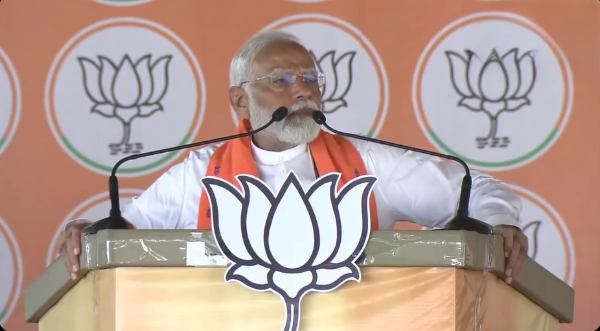In a recent political rally in Dumka, Jharkhand, Prime Minister Narendra Modi made a significant statement regarding the reservation policy in India. His remarks were directed towards the INDI alliance’s proposal of providing reservations to Muslims based on religion.
PM Modi stated, “People of the INDI alliance give reservation to Muslims on the basis of religion.” This statement reflects his concern over the potential implications of such a policy, which could lead to the marginalization of other disadvantaged groups in the country.
He further added, “I want to tell the people of INDI alliance that as long as Modi is alive, you will not be able to snatch away the reservation of Tribals, Dalits, backward classes and extremely backward classes and give it to Muslims, to those who do ‘vote jihad’.”
The Prime Minister’s remarks come at a time when the debate around reservation policies in India has been reignited. The INDI alliance’s proposal has been met with criticism from various quarters, including the BJP.
PM Modi’s words reflect his commitment to uphold the rights of Tribals, Dalits, backward classes, and extremely backward classes. He emphasized that these groups should not be deprived of their rightful reservations in favor of any other community.
The Prime Minister’s stance on this issue underscores the BJP’s position on reservation policies in India. It also highlights the ongoing political discourse around religious-based reservations and the potential impact on India’s social fabric.
As the debate continues, it remains to be seen how the INDI alliance responds to PM Modi’s remarks and what implications this could have for the future of reservation policies in India. The discourse around this issue is likely to play a significant role in shaping the political landscape in the run-up to the upcoming elections.
This news update serves as a reminder of the complexities involved in India’s reservation policies and the need for a balanced approach that ensures social justice for all communities. It also underscores the importance of political leadership in guiding the nation towards a more inclusive future.



